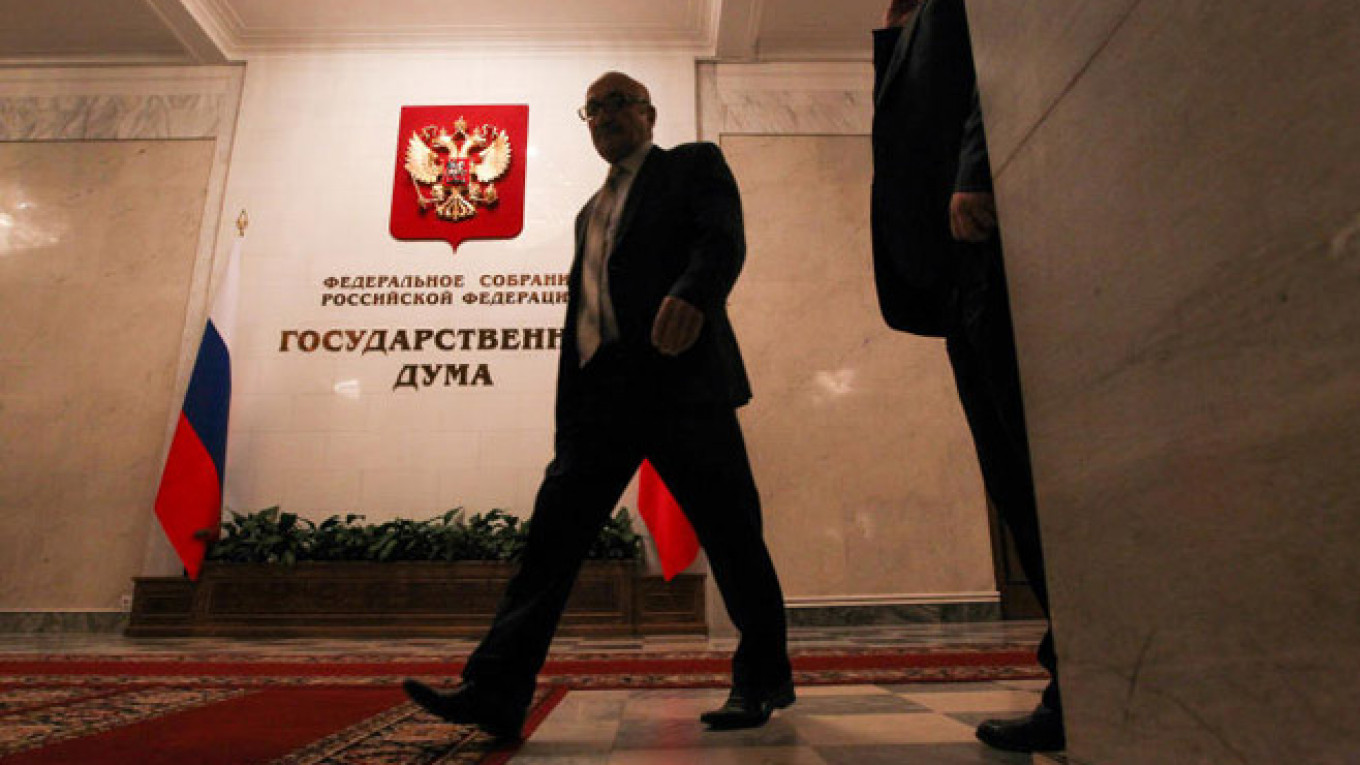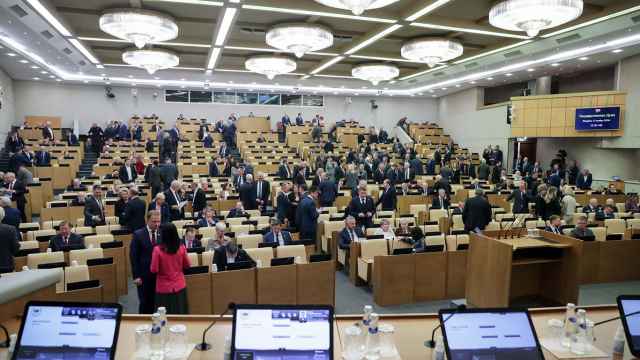In the end, the State Duma went out with a bang, passing a dozen hard-line amendments on its last day. They include new privacy restrictions, punishment for extremism-related offenses and lowering the minimum age of criminal prosecution to 14 years for a wide range of crimes. This legislation, the harshest seen in years, was condemned by the opposition and media as "draconian."
And so, the sixth convocation of the State Duma will go down in history as Russia's most controversial. Elected in 2011 in the shadow of disputed elections and mass protests, its parliamentarians went on to pass some of the most repressive laws in post-Soviet history.
Here is a summary of some of its the Duma's most infamous moments.
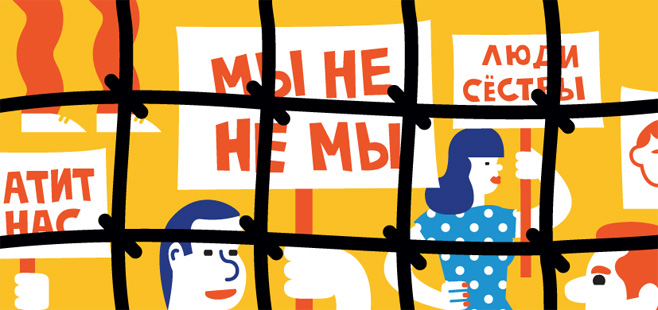
Crackdown
A major crackdown followed the mass protests of winter 2011-12, when tens of thousands of people took to the streets of Moscow to protest disputed elections. Duma lawmakers first moved to raise the stakes for protest. In 2012, they increased fines tenfold, introduced community service as a new type of punishment and outlined more restrictions and tougher penalties for unsanctioned rallies.
Two years later, in 2014, the legislation was tightened further, when repeat violations of this new law became a criminal offense punishable by up to five years in prison or a fine of up to 1 million rubles ($15,500). Within a year, the first prison term — three years — was handed out.
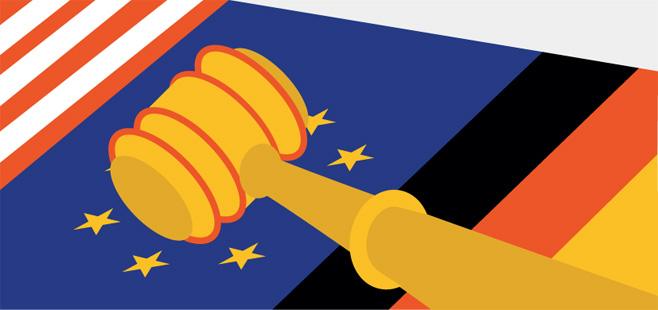
Tackling the Enemy Without
Once done with protesters, Duma deputies moved on to another enemy — the West.
In 2012 the so-called "foreign agents" law was passed, defining any NGO that receives foreign funding and engages in loosely defined "political activity" as a "foreign agent." Such NGOs became subject to additional levels of government scrutiny and bureaucracy. Many prominent NGOs shut down as a result of the affair, unwilling to work under a label with strong espionage connotations. Others, having given up on foreign funding, went bankrupt. More than 80 NGOs are now listed as "foreign agents," buried deep under bureaucracy.
Russian media found itself in the cross fire, too. In 2014, foreign nationals were banned from founding media outlets in Russia and foreign ownership limited to 20 percent. This turned the media market upside down. At the time, many local major publishing houses were owned by international companies, like Finland's Sanoma or Germany's Axel Springer. Owners were made to sell their assets to Russian citizens, often at a loss.
But the biggest punch came with the so-called "Dima Yakovlev law" in 2013. This new law prohibited U.S. nationals from adopting Russian children. While hidden behind child welfare arguments, the law was in face a reaction to the U.S. Magnitsky Act that subjected certain Russian officials to travel bans and asset freezes.
Finally, authority of international courts was heavily undermined by the Duma in 2015. It passed a bill empowering Russia's Constitutional Court to ignore the rulings of international courts when rulings don't comply with the Constitution. So far, none of the high-profile rulings of international courts have been overturned, but there are concerns that the international courts — often viewed by Russians as a last resort — have been rendered powerless.
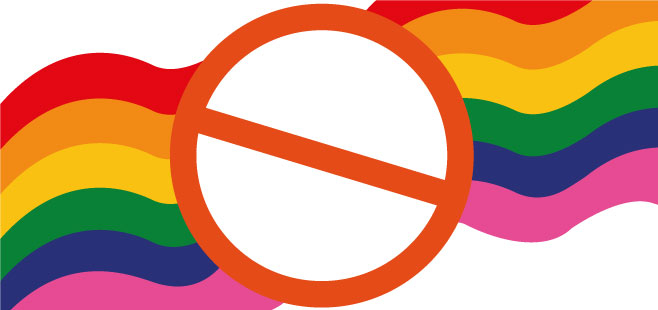
Turning Russia Straight
Much of the Duma's activity was devoted to a frenzied fight for so-called "traditional values." A traditional heterosexual family and the Orthodox church were both held up as pillars of Russian society.
In 2013, the Duma banned "propaganda of non-traditional sexual relations," effectively outlawing public demonstrations of LGBT affection and much campaigning. That same year, lawmakers banned adoption of Russian children for same-sex couples both in Russia and abroad. Their reasoning was in order not to see children "psychologically and psychiatrically traumatized."
The Duma was also concerned about protecting another social group from trauma. On the heels of the high-profile Pussy Riot trial in 2012, a new offense was invented for "offending the feelings of religious believers." This crime could be punished by a large fine or imprisonment for up to one year. As experience has shown, a comment in a social network is enough to trigger prosecution under this new law.
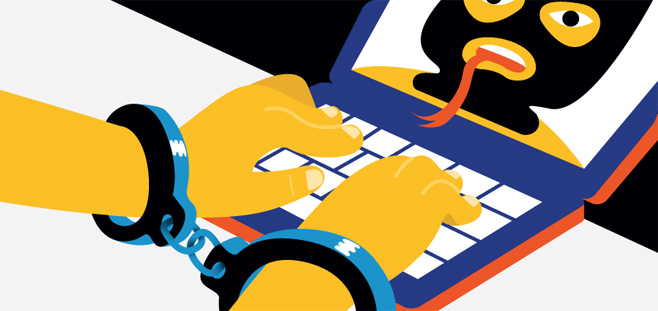
Talk Is No Longer Cheap
The Internet came under special attention in 2014. At the start of the year, the State Duma gave new rights to media and Internet watchdog Roskomnadzor, allowing it to extrajudicially block websites containing calls for "mass riots" or "extremist activities." It legally equated bloggers with media outlets, and burdened them with the same liabilities media outlets have. It also forced search engines to comply with people's right "to be forgotten" — or, technically speaking, demands to delete information about them that is not true or no longer of current interest.
Scrutiny was paid to weeding out "extremists" and "terrorists" online. There were harsher punishments for "calls to extremist and separatist activities," as well as "inciting hatred and hostility" on the Internet. A person charged with either of the two could have faced either community service or up to five years in prison. Legislation proved popular as dozens were convicted under such charges.
And in late June, lawmakers raised the bar higher, passing new amendments for longer prison terms for inciting or justifying terrorism online. The amendments also require parcels to be checked for illegal items, and increase the number of crimes for which children aged 14-17 can be charged.
Communications companies will also see a crackdown, with the new laws requiring them to monitor the content of phone calls and messages and to keep them on file for six months. All messaging apps which use encryption will also be required to add additional code allowing access to the Russian security services.

Those That Didn't Make the Cut
As enthusiastic as the State Duma was at banning things, some restricting bills never made it to the finish line.
For example, they tried to ban bad news on television: Oleg Mikheyev from A Just Russia Party introduced a bill in 2012 outlining prison terms for journalists airing "negative" news stories. According to Mikheyev, 70 percent of television air time should be devoted to "positive" stories.
Then there was a bill banning use of loanwords that have Russian equivalents in the media, introduced in 2014 by the LDPR party. Its authors proposed a fine on anyone using words originating from the English language instead of Russian equivalents.
But perhaps the award for the most outrageous law should be awarded to the now infamous lawmakers Yelena Mizulina and Olga Batalina for their plan to impose taxes on divorced or childless families.
Elections for the new Duma are scheduled for Sept. 18.
Contact the author at d.litvinova@imedia.ru. Follow the author on Twitter at @dashalitvinovv
A Message from The Moscow Times:
Dear readers,
We are facing unprecedented challenges. Russia's Prosecutor General's Office has designated The Moscow Times as an "undesirable" organization, criminalizing our work and putting our staff at risk of prosecution. This follows our earlier unjust labeling as a "foreign agent."
These actions are direct attempts to silence independent journalism in Russia. The authorities claim our work "discredits the decisions of the Russian leadership." We see things differently: we strive to provide accurate, unbiased reporting on Russia.
We, the journalists of The Moscow Times, refuse to be silenced. But to continue our work, we need your help.
Your support, no matter how small, makes a world of difference. If you can, please support us monthly starting from just $2. It's quick to set up, and every contribution makes a significant impact.
By supporting The Moscow Times, you're defending open, independent journalism in the face of repression. Thank you for standing with us.
Remind me later.


